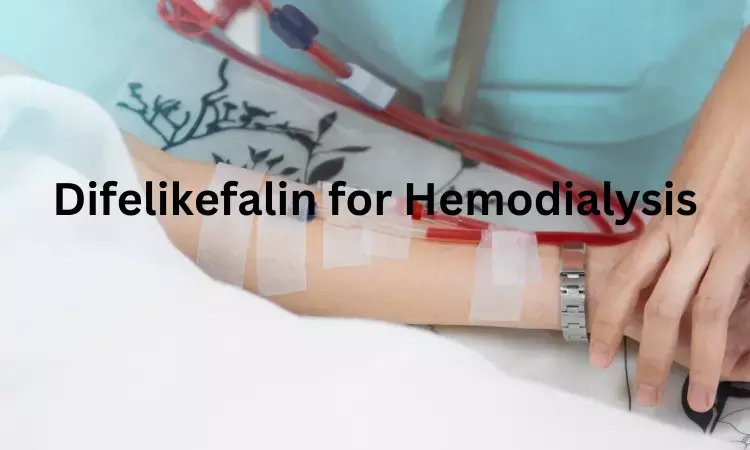- Home
- Medical news & Guidelines
- Anesthesiology
- Cardiology and CTVS
- Critical Care
- Dentistry
- Dermatology
- Diabetes and Endocrinology
- ENT
- Gastroenterology
- Medicine
- Nephrology
- Neurology
- Obstretics-Gynaecology
- Oncology
- Ophthalmology
- Orthopaedics
- Pediatrics-Neonatology
- Psychiatry
- Pulmonology
- Radiology
- Surgery
- Urology
- Laboratory Medicine
- Diet
- Nursing
- Paramedical
- Physiotherapy
- Health news
- Fact Check
- Bone Health Fact Check
- Brain Health Fact Check
- Cancer Related Fact Check
- Child Care Fact Check
- Dental and oral health fact check
- Diabetes and metabolic health fact check
- Diet and Nutrition Fact Check
- Eye and ENT Care Fact Check
- Fitness fact check
- Gut health fact check
- Heart health fact check
- Kidney health fact check
- Medical education fact check
- Men's health fact check
- Respiratory fact check
- Skin and hair care fact check
- Vaccine and Immunization fact check
- Women's health fact check
- AYUSH
- State News
- Andaman and Nicobar Islands
- Andhra Pradesh
- Arunachal Pradesh
- Assam
- Bihar
- Chandigarh
- Chattisgarh
- Dadra and Nagar Haveli
- Daman and Diu
- Delhi
- Goa
- Gujarat
- Haryana
- Himachal Pradesh
- Jammu & Kashmir
- Jharkhand
- Karnataka
- Kerala
- Ladakh
- Lakshadweep
- Madhya Pradesh
- Maharashtra
- Manipur
- Meghalaya
- Mizoram
- Nagaland
- Odisha
- Puducherry
- Punjab
- Rajasthan
- Sikkim
- Tamil Nadu
- Telangana
- Tripura
- Uttar Pradesh
- Uttrakhand
- West Bengal
- Medical Education
- Industry
Intravenous Difelikefalin may improve pruritus in hemodialysis patients

Pruritus also known as itchy skin is an irritating sensation that makes you want to scratch. Itchy skin is often caused by dry skin and is common in older adults, as skin tends to become drier with age. Difelikefalin, a peripherally specific selective agonist of Kappa Opioid Receptors (KORs), has been approved for the treatment of pruritus is secondary to chronic kidney disease. KORs were first associated with itching in 1984 yet not much is known in non-US populations.
A new study in New England Journal of Medicine states that Intravenous administration of difelikefalin reduced itching and improved quality of life in patients with moderate to severe pruritus who were undergoing maintenance hemodialysis.
The study was double-blind, placebo-controlled, phase 3 trial in Japan, patients with moderate to severe pruritus were randomly allocated 1:1 to receive either placebo or 0.5 μg/kg of difelikefalin three times per week intravenously for 6 weeks. The primary end point was change from baseline in the Worst Itching Intensity Numerical Rating Scale (NRS; 0 to 10; higher scores indicate more severe itching) score at week 4.
The key findings of the study are
• A total of 230 patients were screened, of whom 178 were randomly assigned to receive placebo (n=89) or difelikefalin (n=89).
• The change from baseline in the weekly adjusted mean NRS score (95% confidence interval) at week 4 in the placebo and difelikefalin groups was −1.09 (−1.47 to −0.70) and −2.06 (−2.45 to −1.66), respectively.
• The difference between the groups was −0.97 (−1.52 to −0.42), demonstrating that difelikefalin was superior to placebo (P<0.001).
• Prespecified secondary quality-of-life end points showed consistent improvement associated with difelikefalin.
• The incidence of treatment-related adverse events in the placebo and difelikefalin groups was 3 of 89 patients (3%) and 13 of 89 patients (15%), respectively, of which the majority in the difelikefalin group were gastrointestinal (e.g., constipation and abdominal discomfort).
Researchers concluded that “Intravenous difelikefalin reduced itching and improved quality of life in patients with moderate to severe pruritus who were undergoing maintenance hemodialysis.”
Reference: Ichiei Narita, M.D., Ph.D. naritai@med.niigata-u.ac.jp et al; Difelikefalin for Hemodialysis Patients with Pruritus in Japan; NEJM Evid 2023;2(11); DOI: 10.1056/EVIDoa2300094
MSc. Neuroscience
Niveditha Subramani a MSc. Neuroscience (Faculty of Medicine) graduate from University of Madras, Chennai. Ambitious in Neuro research having worked in motor diseases and neuron apoptosis is interested in more of new upcoming research and their advancement in field of medicine. She has an engrossed skill towards writing and her roles at Medical dialogue include Sr. Content writer. Her news covers new discoveries and updates in field of medicine. She can be reached at editorial@medicaldialogues.in
Dr Kamal Kant Kohli-MBBS, DTCD- a chest specialist with more than 30 years of practice and a flair for writing clinical articles, Dr Kamal Kant Kohli joined Medical Dialogues as a Chief Editor of Medical News. Besides writing articles, as an editor, he proofreads and verifies all the medical content published on Medical Dialogues including those coming from journals, studies,medical conferences,guidelines etc. Email: drkohli@medicaldialogues.in. Contact no. 011-43720751


